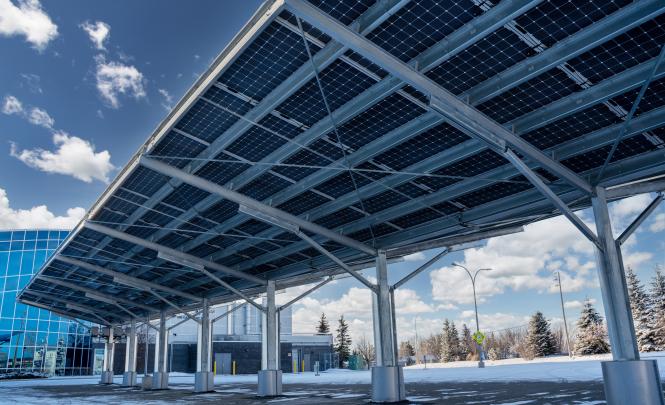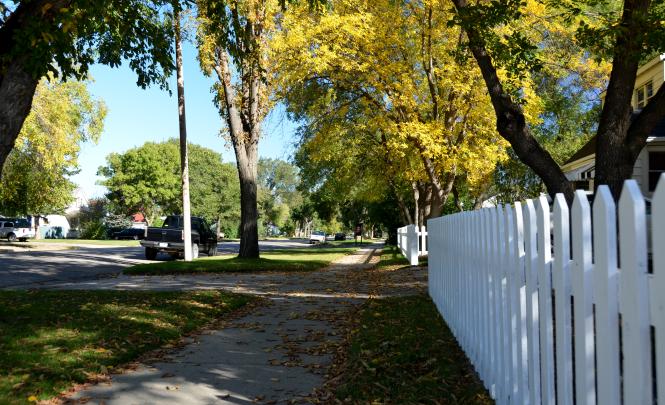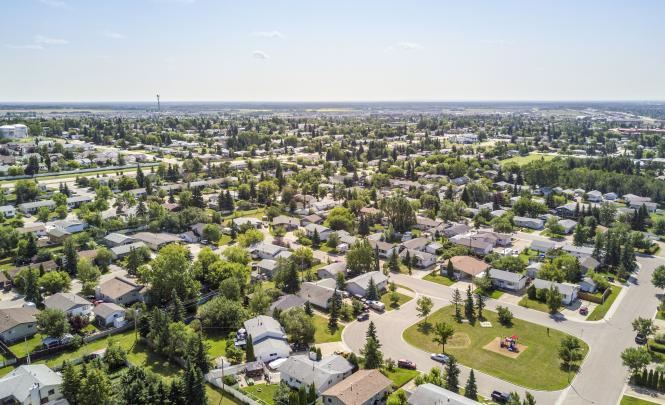Clean Energy Improvement Program
Improve property values and achieve your community sustainability goals
The Clean Energy Improvement Program (CEIP) is Alberta’s innovative financing tool that enables residential and commercial property owners to pay for energy efficiency and renewable energy upgrades. The program gives property owners access to flexible, long-term financing through their municipality. Unlike a traditional loan, repayment is facilitated by a tax added to the property’s tax bill. The Clean Energy Improvement Program is made possible by the Government of Alberta.
Flexible financing
Alberta’s Clean Energy Improvement Program (CEIP) provides municipalities the opportunity to offer competitive financing to property owners for energy efficiency and renewable energy upgrades. CEIP covers up to 100 per cent of project costs and offers convenient repayment through property owners’ regular property tax bill.
What makes CEIP different from all other financing options available in the market is that the project financing is attached to the property, not the property owner. If the property is sold, the new owner assumes responsibility for repayment, while also enjoying the benefits of the upgrade. CEIP project financing can be repaid at any time. Interest rates and terms are set by each participating municipality.
For renovations that make a difference
Property owners benefit from lower interest rates secured by their municipality and approval is primarily based on mortgage and property tax payment history.
Because the financing is attached to the property, if the property sells, the new owner will take on repayment while enjoying the benefits of lowered utility bills and increased property value.
This encourages property owners to take on multiple, cost-saving renovations at once—for example, replacing a furnace and hot water tank while also adding insulation and solar PV. Property owners can then save on energy costs which makes it easier to pay back their financing.
Municipalities that encourage clean energy improvements achieve community climate and sustainability goals faster. At the same time, they generate more work for local contractors, upgrade their community’s building stock, and decrease residents’ utility bills.
Benefits to your community
Boost local business: Grow economic opportunity for your local HVAC contractors, window and insulation installers, solar PV installers, and energy auditors.
Better building stock: Energy efficiency and renewable energy upgrades raise property values and result in a future-ready, resilient building stock.
Sustainability goals: Demonstrate your municipality’s commitment to sustainability and accelerate community greenhouse gas emissions reductions.
Affordability: This type of financing reduces upfront cost barriers, making cost saving renovations attainable throughout your community.
The Province of Alberta’s legislative framework established the basis for the program in 2018, ensuring consumer protections and the designation of a program administrator.
Interested municipalities can participate by passing their own clean energy improvement bylaw. Having passed a bylaw, a municipality works with the program administrator, Alberta Municipalities, to tailor their own version of the program.
In general, here is how the program works:
Step 1: The municipality passes a Clean Energy Improvement Tax bylaw and secures the capital required to finance eligible projects.
Step 2: Once the program is on market, property owners install eligible upgrades and Alberta Municipalities verifies the project is complete.
Step 3: Once verified, the municipality transfers funds to Alberta Municipalities to pay Qualified Contractors for completed work.
Step 4: Property owners repay the municipality for the cost of the project through a charge on their regular property tax bill.
Every municipality in Alberta has the option to pass a bylaw and implement their own CEIP with Alberta Municipalities as program administrator. Alberta Municipalities can provide technical support with bylaw development and program design to help ensure a smooth launch.
Bylaws
The Act to Enable Clean Energy Improvements and the regulation enabled under the Act establish the process for municipalities to implement a CEIP in their community.
The first step for any municipality is for council to pass a clean energy improvement tax bylaw.
This bylaw authorizes a municipality to impose a clean energy improvement tax on an individual property, and establishes the interest rates, repayment period, types of eligible property, and other terms as established in the legislation.
To date, the following municipalities have passed bylaws:
1. Town of Devon on November 25, 2019.
2. Town of Rocky Mountain House on December 3, 2019.
3. Town of Canmore on December 4, 2020.
4. City of Leduc on April 12, 2021.
5. Town of Okotoks on May 10, 2021.
6. City of St. Albert on May 17, 2021.
7. City of Lethbridge on August 10, 2021.
8. City of Edmonton on August 19, 2021.
9. City of Grande Prairie on August 23, 2021.
10. Town of Drayton Valley on September 15, 2021.
11. City of Calgary on December 6, 2021.
12. Town of Westlock on March 28, 2022.
13. Village of Stirling on April 6, 2022.
14. Sturgeon County on April 12, 2022.
15. Strathcona County on July 5, 2022.
16. Town of Pincher Creek on August 22, 2022.
17. City of Beaumont on September 13, 2022.
18. Town of Taber on September 26, 2022.
19. MD of Pincher Creek No. 9 on Oct. 11, 2022.
20. City of Cold Lake on Oct. 21, 2022.
21. Town of Slave Lake on Jan. 17, 2023.
22. Town of Banff on March 13, 2023.
23. City of Medicine Hat on April 17, 2023.
24. Town of Stettler on May 2, 2023.
25. City of Wetaskiwin on June 26, 2023.
26. City of Spruce Grove on September 11, 2023.
27. City of Airdrie passed a bylaw on January 15, 2024.
28. Municipality of Jasper passed a bylaw on September 10, 2024.
29. Lac La Biche County passed a bylaw on October 22, 2024.
Active programs
Having passed bylaws, secured capital, and designed their programs, the following municipalities have launched a Clean Energy Improvement Program:
1. Town of Rocky Mountain House for residential property on November 4, 2021.
2. Town of Devon for residential property on January 19, 2022.
3. City of Edmonton for residential property on March 29, 2022.
4. City of Leduc for residential property on May 30, 2022.
5. City of Edmonton for commercial property on June 7, 2022.
6. Town of Canmore for residential property on November 1, 2022.
7. City of St. Albert for residential property on November 22, 2022.
8. City of Calgary for residential property on January 31, 2023.
9. City of Lethbridge for residential property on February 28, 2023.
10. City of Grande Prairie for residential property on May 9, 2023.
11. Sturgeon County for residential property on July 5, 2023.
12. Village of Stirling for residential property on September 12, 2023.
13. Strathcona County for residential property on October 17, 2023.
14. Town of Westlock for residential property on October 31, 2023.
15. Town of Okotoks for residential property on January 23, 2024.
16. City of Cold Lake for residential property on February 27, 2024.
17. Town of Stettler for residential property on March 26, 2024.
18. MD and Town of Pincher Creek launched on May 14, 2024.
19. Sturgeon County for commercial property on June 12, 2024.
20. City of Medicine Hat for residential launched on June 18, 2024.
21. Town of Drayton Valley for residential properties launched on June 25, 2024.
22. Town of Taber for residential properties launched on October 22, 2024.
23. City of Airdrie for residential properties launched on February 4, 2025.
24. Town of Banff for residential properties launched on March 18, 2025.
25. City of Spruce Grove for residential properties launched on May 13, 2025.
26. City of Wetaskiwin for residential properties launched on October 1, 2025.
27. Municipality of Jasper for residential properties launched on November 25, 2025.
To see the progress the Clean Energy Improvement Program is making for Alberta municipalities, download our latest annual report.

Getting started
If you want to offer property owners in your community a new way to pay for energy-saving renovations, here’s how to launch the Clean Energy Improvement Program (CEIP) in your municipality.

For Property Owners
Are you a property owner who wants to make a difference with your property? Click here to learn how.

PACE
This program is Alberta’s version of Property Assessed Clean Energy (PACE) financing. PACE financing relies on the same process that municipalities already use to pay for public goods like sidewalks and sewers, the local improvement tax. Over 15 Canadian municipalities have launched PACE programs.